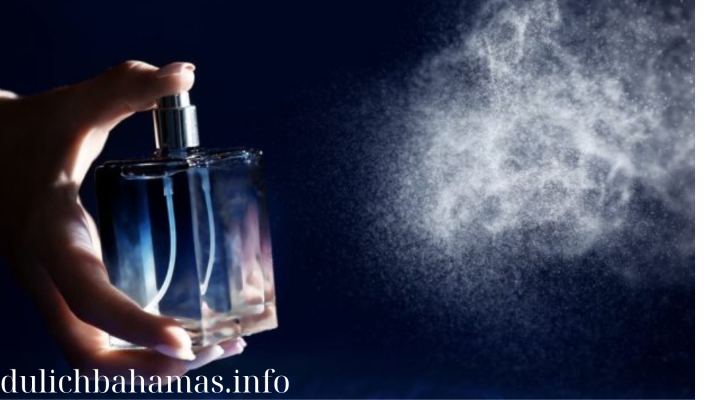Selecting the perfect perfume is a personal and sensory experience. A fragrance can evoke emotions, enhance your mood, and leave a lasting impression, so finding the right one is important. With countless options available, this guide will help you navigate the world of perfumes, from understanding fragrance notes to choosing the best scent for your personality and occasion.
1. Understand Fragrance Notes: The Building Blocks of Perfume
Perfumes are composed of different notes that create the overall scent. These notes unfold over time, revealing layers of fragrance as you wear the perfume.
- Top Notes: These are the first scents you smell when applying a perfume. They are light and fade quickly, typically lasting about 10 to 15 minutes. Common top notes include citrus, lavender, and light florals.
- Heart (Middle) Notes: After the top notes evaporate, the heart notes emerge. These form the core of the fragrance and last for several hours. Floral, spicy, and fruity scents are common in this stage.
- Base Notes: The base notes are the foundation of the perfume and provide lasting depth. They can linger for hours or even all day, with musky, woody, or earthy notes being common.
Key Insight: Understanding the structure of a perfume helps you anticipate how a fragrance will develop and what notes will dominate throughout the day.
2. Fragrance Families: Identifying Your Preferred Scent Profile
Perfumes are categorized into fragrance families, each with distinct characteristics. Knowing your preferred fragrance family can simplify the selection process.
- Floral: Floral perfumes are often romantic and feminine, featuring scents of roses, jasmine, lilies, and other blossoms. These are ideal for those who prefer light, sweet, and delicate fragrances.
- Oriental: Exotic and warm, oriental fragrances include spicy notes like cinnamon, clove, and vanilla, often paired with amber and musk. These perfumes are sensual and bold, perfect for evening wear.
- Fresh: These fragrances are light and invigorating, often featuring citrus, aquatic, or green notes. Fresh scents are ideal for daytime wear and appeal to those who prefer clean, crisp aromas.
- Woody: Woody perfumes evoke a sense of nature, with notes like sandalwood, cedar, and patchouli. These scents are often earthy, warm, and long-lasting, making them perfect for fall and winter.
Key Insight: Identifying which fragrance family you resonate with can narrow down your options and help you choose a perfume that aligns with your style and mood.
3. Eau de Toilette vs. Eau de Parfum: Understanding Concentration Levels
Perfumes come in various concentrations, which affect both their intensity and longevity. Understanding the differences can help you choose the right fragrance for your needs.
- Eau de Toilette (EDT): This concentration has a lower percentage of fragrance oils (typically 5-15%) and provides a lighter, more subtle scent. EDTs are ideal for daily wear, especially in warmer weather, as they tend to last 3 to 5 hours.
- Eau de Parfum (EDP): With a higher concentration of fragrance oils (15-20%), EDPs offer a stronger, longer-lasting scent, typically lasting 6 to 8 hours. They are perfect for evening wear or when you want a more noticeable fragrance.
- Parfum (Extrait de Parfum): The most concentrated and long-lasting option, parfum contains 20-30% fragrance oils. A little goes a long way, and it can last all day, making it ideal for special occasions.
Key Insight: Choose an Eau de Parfum for a richer, long-lasting scent, or an Eau de Toilette for a lighter, everyday fragrance.
4. Test Before You Buy: How to Properly Try Fragrances
Sampling perfumes before purchasing is essential to ensure you choose a fragrance that works with your body chemistry and preferences.
- Test on Your Skin: Perfumes react differently on various skin types due to natural oils and pH levels. Always test a fragrance on your wrist or forearm rather than on a paper strip, and wait at least 30 minutes to allow the notes to develop.
- Limit the Number of Scents: Your sense of smell can become overwhelmed if you test too many perfumes at once. Stick to testing no more than three fragrances in one session, and sniff coffee beans between tests to reset your sense of smell.
- Wear It for a Day: Fragrances can evolve over time, so if you’re seriously considering a perfume, wear it for an entire day to see how it develops on your skin and how long it lasts.
Key Insight: Testing perfumes on your skin and giving them time to develop ensures that you choose a fragrance that works best for your body and style.
5. Choose a Scent for Every Occasion: Day, Night, and Special Events
Different occasions call for different scents. Having a versatile fragrance wardrobe ensures you always have the right scent for any setting.
- Daytime: For work or casual settings, opt for light, fresh fragrances with floral or citrus notes. These are subtle and won’t overpower the space around you.
- Evening: For evenings or formal events, richer, more intense perfumes like orientals or woody scents are ideal. Their depth and complexity make a lasting impression.
- Special Occasions: For weddings, anniversaries, or other significant events, choose a signature scent that’s luxurious and unique. A parfum or an EDP with bold, captivating notes will add to the elegance of the occasion.
Key Insight: Matching your perfume to the occasion ensures that your scent complements the setting and leaves the right impression.
6. Consider Seasonal Scents: Adjusting Your Perfume with the Weather
Just as you change your wardrobe with the seasons, adjusting your fragrance to suit the weather can enhance your overall experience.
- Spring and Summer: Light, fresh scents work best in warmer months. Floral, citrus, and aquatic fragrances feel refreshing in the heat, as heavy scents can become overwhelming.
- Fall and Winter: As the weather cools, switch to deeper, warmer scents. Woody, spicy, and oriental perfumes are perfect for colder months, adding warmth and comfort.
Key Insight: Seasonal perfumes complement the climate and create a balanced, harmonious experience between the environment and your fragrance.
7. Fragrance and Personality: Find a Scent That Matches Your Style
Your fragrance is an extension of your personality, so it’s important to choose a scent that reflects who you are.
- Classic and Elegant: If you prefer timeless style, consider classic florals, aldehydes, or sophisticated woody scents like sandalwood or vetiver.
- Adventurous and Bold: For those with daring personalities, oriental or spicy fragrances with notes of incense, pepper, or patchouli offer a bold statement.
- Free-Spirited and Light-Hearted: If you have a carefree attitude, fresh or citrus-based fragrances with notes of lemon, mint, or light florals can capture your vibrant energy.
Key Insight: Aligning your perfume with your personality creates a more authentic and personal connection to your fragrance.
Final Thoughts
Choosing the right perfume is a deeply personal experience, and finding the perfect fragrance involves understanding your preferences, testing various scents, and matching them to different occasions or seasons. With this comprehensive guide, you can confidently select a fragrance that complements your personality, lifestyle, and mood, leaving you feeling both confident and unforgettable.



